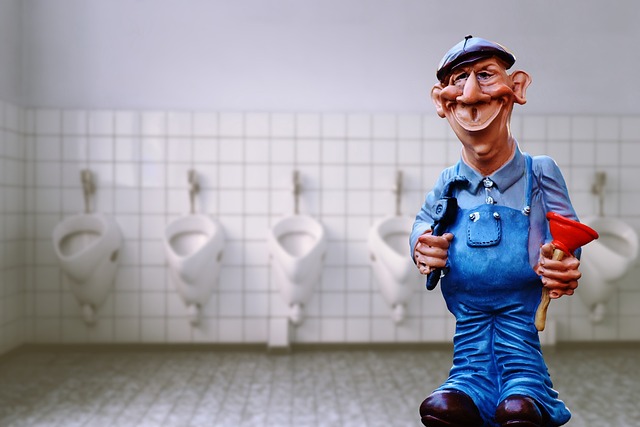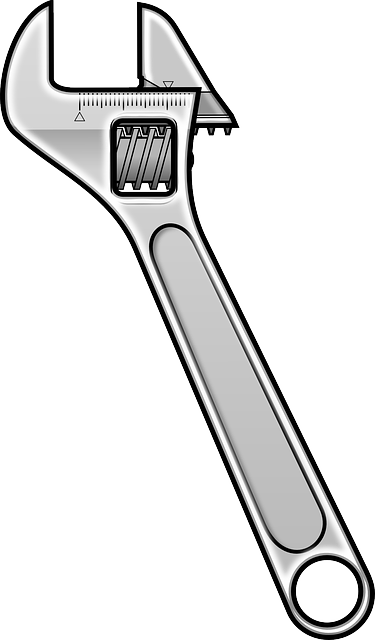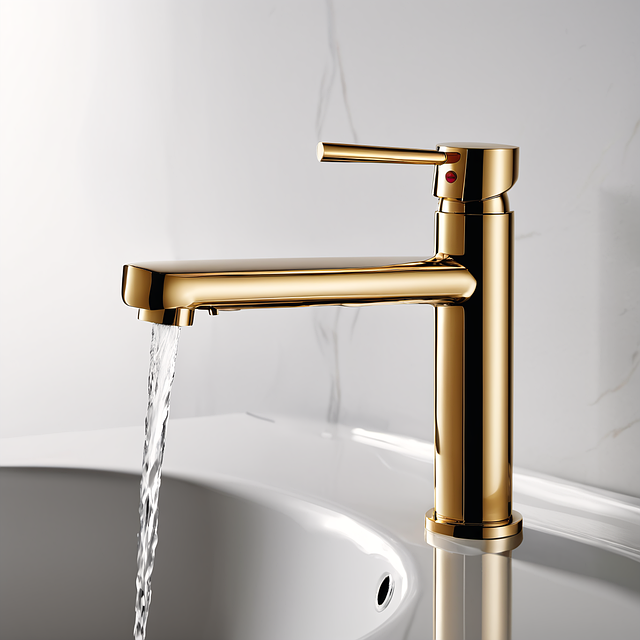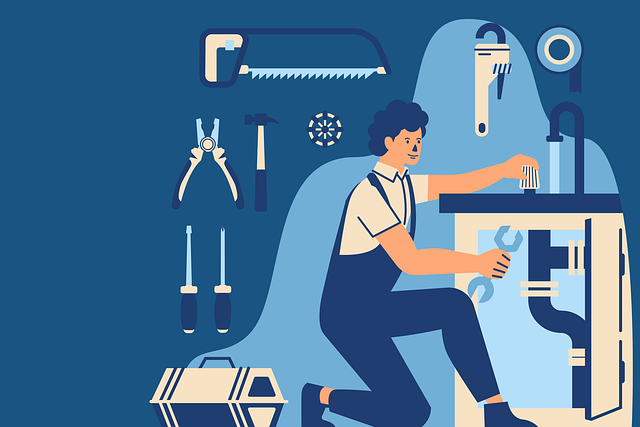Plumbers are essential professionals who maintain and repair complex water distribution systems in buildings, ensuring daily comfort and safety. They work with various pipe materials like copper, PVC, and steel, each with unique benefits, to address issues such as leaks or low water pressure. Skilled plumbers must adhere to strict codes for safe, durable installations, playing a crucial role in property maintenance and functionality.
“Unblocking the Pipes: Your Comprehensive Guide to Plumbing Maintenance and Repair”
Whether in a bustling residential neighborhood or a commercial hub, efficient piping systems are crucial. This article delves into the intricacies of plumbing, empowering you with knowledge. We explore different types of piping systems, common materials, and essential components that form the backbone of any plumbing network.
Learn about the plumber’s toolkit, understanding when to grasp a wrench or reach for power tools. Discover safety protocols and specialized equipment used in complex repairs. Additionally, we provide insights on regular maintenance, troubleshooting common issues like leaks, clogs, low water pressure, and more.
- Understanding Piping Systems and Fixtures
- – Types of piping systems used in residential and commercial settings
- – Common materials and their properties
Understanding Piping Systems and Fixtures

Piping systems and fixtures are the backbone of any building, ensuring the efficient distribution of water for drinking, cooking, and sanitation, as well as heating and cooling processes. A plumber is a professional skilled in understanding these intricate networks. They navigate through complex layouts, from residential to commercial properties, to install, repair, and maintain these vital systems.
Knowledgeable plumbers recognize various pipe materials—copper, PVC, steel—and fixture types—sinks, toilets, heaters—and are adept at troubleshooting issues like leaks, clogs, or low water pressure. Their work demands precision and a deep understanding of plumbing codes to ensure safe and compliant installations that stand the test of time.
– Types of piping systems used in residential and commercial settings

In both residential and commercial buildings, various types of piping systems are employed to facilitate water supply, waste removal, and heating/cooling. Plumbers often work with copper, PVC (polyvinyl chloride), and PEX (cross-linked polyethene) pipes. Copper has long been the standard for its durability, malleability, and resistance to corrosion, particularly in residential settings where it’s used for both hot and cold water supply lines.
PVC is widely used in commercial buildings due to its low cost, ease of installation, and resistance to chemicals and corrosion. It’s often employed for drainage systems and cold water supply lines. PEX, gaining popularity among plumbers, offers flexibility, durability, and is less susceptible to freezing damage compared to copper or PVC, making it a versatile choice for both residential and commercial applications.
– Common materials and their properties

Plumbers often work with a variety of materials when installing, repairing, and maintaining piping systems and fixtures. Common choices include copper, plastic (such as PVC and CPVC), and steel. Copper is known for its excellent corrosion resistance, flexibility, and ability to withstand high temperatures, making it ideal for both residential and commercial plumbing applications. Plastic pipes offer durability, low cost, and easy installation, while steel pipes are prized for their strength and longevity, often used in harsh environments or heavy-duty systems.
Each material has unique properties that suit different situations. For instance, PVC is lightweight, non-corrosive, and easy to cut and join, making it popular for drain lines and certain fixture installations. CPVC shares similar benefits but can withstand higher temperatures, making it suitable for hot water supply lines. Steel piping, though more challenging to install, provides exceptional strength and resistance to high pressure and extreme temperatures, crucial for commercial and industrial settings. Understanding these materials and their properties is essential for plumbers to ensure effective and efficient system performance.
A plumber is a vital professional who ensures the smooth operation of piping systems and fixtures in our homes and businesses. With their expertise, they install, repair, and maintain these essential components, keeping water flowing freely and efficiently. By understanding the various types of piping systems and materials, plumbers can tackle any job, from residential to commercial settings, ensuring a well-functioning plumbing system for years to come.
